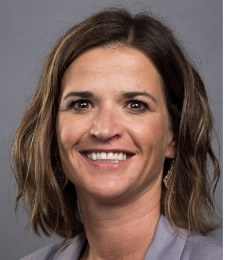I’m thrilled to announce that Bedard Law Group is the new sponsor for the Compliance Digest. Bedard Law Group, P.C. – Compliance Support – Defense Litigation – Nationwide Complaint Management – Turnkey Speech Analytics. And Our New BLG360 Program – Your Low Monthly Retainer Compliance Solution. Visit www.bedardlawgroup.com, email John H. Bedard, Jr., or call (678) 253-1871.

Every week, AccountsRecovery.net brings you the most important news in the industry. But, with compliance-related articles, context is king. That’s why the brightest and most knowledgable compliance experts are sought to offer their perspectives and insights into the most important news of the day. Read on to hear what the experts have to say this week.
Bona Fide Error Defense Nets Defendant MSJ in FDCPA Case
A District Court judge in Wisconsin has granted summary judgment to a defendant in a Fair Debt Collection Practices Act case after the defendant invoked the bona fide error defense because it used a creditor-approved abbreviation to reference the name of a creditor in a collection letter. More details here.

WHAT THIS MEANS, FROM DENNIS BARTON OF THE BARTON LAW GROUP: Just like there are judges who deliver really bad opinions when we think just the opposite, sometimes we get a good opinion when the facts and law support a consumer victory. That’s how I view the decision in Heisler v. Convergent Healthcare Recoveries, et al.
In Heisler, Wheaton Franciscan Healthcare: Elmbrook Memorial Campus (“Wheaton”) performed medical service for Mr. Heisler. Convergent sent a collection letter that identified the creditor’s name as “WF, Inc – Elmbrook Mem” rather than the full name because its collection software did not allow enough letter for Convergent to include the whole name in the letter. Convergent argued that its procedure is to identify the creditor in the letters as the creditor requests. In this instance, Wheaton said to identify it as “WF, Inc – Elmbrook Memorial.” Plaintiff’s claimed identifying the creditor as “WF, Inc – Elmbrook Mem” was insufficient to satisfy the requirements of the FDCPA because the abbreviation did not sufficiently state the creditor’s name.
The Court found Convergent’s abbreviation did not identify the creditor as required by § 1692g because it did not present evidence most people in the community would have known the provider by that name. The Court, though, entered summary judgment in favor of Convergent based on its bona fide error defense. Convergent knew it had space limitations, so its procedures were to have creditors agree on what would be an abbreviation known to its customers. The court found the procedure was sufficient because a creditor should know how to present its name to be accurate and clear to its consumers. The court emphasized Convergent had no reason to know the consumers would not have understood the abbreviation, and the software with the limitations had been used for years without a problem. In addition, Convergent’s procedure had been reviewed by general and outside counsel.
Don’t get me wrong, I am happy the collector prevailed, but many, if not most courts, would have reached a different finding on the bona fide error defense given a similar fact pattern. The bona fide error defense, in a nutshell, says that a collector is not liable for an unintended violation if it had procedures in place to prevent it. Typically, this defense does not apply to systematic errors because courts question how you can unintentionally continue to make the same systematic error or have an effective procedure in place to prevent it.
In this case, which was initially brought as a class action, the abbreviation of the creditor’s name was used in all letters sent to those consumers. Convergent knew its system’s space limitation could not spell out Wheaton’s full name. Many other courts would have seen the violation an intentional one. The abbreviated name in the letter was intentionally used in the letter, and the court ruled the abbreviated name violated the FDCPA. The knowing and continued use of a name that violates the FDCPA is contrary to a bona fide error because that is supposed to be an error that you do not realize is being made (e.g., if the abbreviation Convergent’s system put in the letters was shorter than what Convergent intended and yet no one caught the error).
The first takeaway from this case is that even though Convergent advanced other defenses it may have thought were more persuasive, we should argue multiple defenses when we have at least a good-faith basis to do so. The second takeaway is the Heisler court pointed out the procedure at issue did not need to be perfectly designed to prevent the error just reasonably adapted to do so. A bona fide error defense can prevail even if a plaintiff can point to some flaws in the procedure, including systematic flaws.
THE COMPLIANCE DIGEST IS SPONSORED BY:

Collection Agency Regulator Group Urges Agencies to Proactively Work With Consumers
A trade group representing regulators of collection agencies has issued guidance, offering a roadmap to help state and federal agencies figure out what they should and should not allow when it comes to the topic of consumer and commercial debt collections, including allowing agencies to stay in contact with individuals during the coronavirus pandemic. More details here.

WHAT THIS MEANS, FROM MIKE FROST OF MALONE FROST MARTIN: Justly, the COVID-19 pandemic is the forefront of most current headlines in the media. It has also been the main focus in the ARM industry. We have moved home to work and have changed our communication channels to daily web huddles, webinars and web articles – all remote based work strategies. That has changed as well for the front lines of the industry as agencies feverishly work to move their workforce to work remote channels. The essence of that move is to maintain the safety of our workforce, their families and to ensure continued communication with consumers to ensure best possible outcomes on past due obligations during this international crisis.
During a state of emergency, it is common to receive direction from regulator agencies related to governed business activities. It is also common to see some regulatory entities drive agendas against specific types of businesses during times of emergency. What we received from the North American Collection Agency Regulatory Association (NACARA) is what I would refer to as “A Diamond in the Rough.”
NACARA released its COVID-19 Announcement on March 27. The announcement focuses on three areas: (1) Consumers and Commercial Debtors, (2) Regulated Entities, and (3) Regulators. In all three areas, the main message was very similar – we need to maintain communication channels and we need to cooperate and mange through this difficult time together. They have a clear agenda and provide direction to all three areas. Consumers – “collection agencies can’t offer help without communication.” Regulated Entities – “take reasonable steps in an attempt to offer assistance to all consumers and commercial debtors who have suffered a loss of income due to this emergency…” Regulators – “it is imperative that regulators be sensitive to the fact that collection agencies may be facing significant hardship in supporting full operations and service customers during this health crisis.”
I tip my hat to NARACA as this is one of the most balanced announcements that I have read during the COVID-19 crisis. The message I take form this announcement is that we are all in this together. No one person is exempt from the challenges we face as a society. And let us find common ground to do what is right for reasonable regulation, compassionate business and responsible community. As state and localities continue to develop and implement new regulations to govern this crisis, I hope and challenge them to consider this message from NACARA as they are created.
Disaster Declaration in N.C. Triggers 30-Day Deferral of ‘Debt Payment’
The approval of a Major Disaster Declaration in North Carolina last week triggered the enactment of a series of provisions that reference collection agencies and a 30-day deferral for accepting payments. More details here.

WHAT THIS MEANS, FROM ETHAN OSTROFF OF TROUTMAN SANDERS: On April 1, the North Carolina Insurance Commissioner published a Frequently Asked Questions document clarifying its previously released Order, Amended Order and Bulletin issued over the past week that requires debt collection agencies to give North Carolina consumers the option of deferring debt payments for a period of 30 days from the due date of payment. The FAQ clarified the following information:
- How does the Order apply to collection agencies? “The Bulleting and Order applies to ALL debts not only insurance debt.”
- Do collection agencies have to proactively reach out to consumers to make them aware of this deferral option? No, “it is up to the customer to take the necessary steps to contact the collection agency to discuss their options.”
- If a collection agency contacts an individual about repayment, does the agency have to communicate this deferral option” Yes, “[i]f the collection agency contacts the customer to discuss repayment, the agency must advise the customer of the option to defer the payment for 30 days.” However, the customer must state its desire to exercise this deferral option. The deferral option does not start automatically upon notification of this option to a consumer.
- If a consumer elects to defer payments, what activities are suspended?
- “All debt pursuits and collection activities should cease, including “transmission of notices of action, any payments which are currently in collection, including those where a payment schedule has been set-up, and time limits imposed by statute.”
- “Not just payments are deferred; ANY collection activity should cease for 30 days.”
- Late fees, penalties, or additional fees may not be applied.
- Do recurring payments have to stop? No, collection agencies do not need to affirmatively communicate this deferral option. However, the collection agency must inform the consumer of this deferral option during any communication. Recurring payments may continue until a consumer affirmatively communicates that he or she wishes to exercise the deferral option.
- Do law firms collecting on the accounts fall under the definition of collection agency? No, NCGS § 58-70-15(c)(8) specifically exempts “[a]ttorneys-at law handling claims and collections in their own name and not operating a collection agency under the management of a layman” from the definition of a collection agency. However, if the law firm is representing insurance companies to collect on insurance contracts or policies, then the firm must delay collection activities during the deferral period.
- When does the Order expire? April 26, 2020
Judge Rejects Request To Set Aside Debt Collection Scammer’s Sentence
A District Court judge in New York has denied a request from an individual who pleaded guilty to wire fraud and was sentenced to 90 months in prison for his role in a multi-million debt collection scam to have his sentence vacated or set aside because the individual’s lawyer was “ineffective.” More details here.

WHAT THIS MEANS, FROM LAURIE NELSON OF PAYMENTVISION: The subject matter case this motion derives from is a true example of why the industry has a bad name and why there will continue to be many regulations that apply to debt collection. To better understand the individual in this case, Mr. Sessum, it helps to know the actual crime at issue in this case, as a charge for wire fraud can cover many criminal scenarios. In total, from about January 2010 through November 2014, Four Star, which Mr. Sessum co-owned and served as CFO and COO, collected more than $31 million from thousands of victims. Millions of which were then paid in cash to Mr. Sessum, and hundreds of thousands of dollars were used to pay for his personal expenses, which included gambling and season tickets.
On November 17, 2016, Mr. Sessum pled guilty to wire fraud. It is clear from the case records that the court confirmed he reviewed the indictment, discussed and understood the charges and consequences of the guilty plea, established at the time he was satisfied with his attorney, and confirmed he understood the rights he was giving up when he pled guilty. At the time of the plea, Mr. Sessum was the only defendant scheduled to proceed to trial. Now he is unhappy; big surprise!
To be smart enough to oversee this type of criminal activity for over four years, it is tough to believe that Mr. Sessum did not understand the acknowledgments and agreements made during his plea case. Ineffective counsel is not the reason Mr. Sessum is in the place he is today.
S.C. Lawmaker Calls For Moratorium on Medical Debt Collection
A state lawmaker in South Carolina is calling on the governor to enact a 60-day moratorium on the collection of medical debts to help people in financial distress caused by the coronavirus pandemic. More details here.

WHAT THIS MEANS, FROM AYLIX JENSEN OF MOSS & BARNETT: Many states are considering, or have already issued, executive orders to halt certain debt collection efforts amidst the COVID-19 pandemic. These executive orders are important to support those who have been impacted financially and to ease some of the financial burdens caused by the spread of COVID-19. However, one-size-fits-all executive orders may be detrimental for the debt collection industry, consumers and the economy. Specifically, these executive orders interrupt communication with consumers and can lead to additional and unnecessary consumer harm, such as credit increases. The collection industry is trained and willing to work with consumers regarding payment plans and other consumer-benefiting programs, especially during these challenging times. Shutting down part of the industry may cause more problems later than it solves now.
Massachusetts Enacts Emergency Collection Regs, Bans Phone Calls to Debtors
The state of Massachusetts has enacted a number of emergency debt collection provisions regulating what collectors can do which will remain in effect until a month after the governor lifts the state of emergency. More details here.

WHAT THIS MEANS, FROM JOANN NEEDLEMAN OF CLARK HILL: The Emergency Collection Regulations issued by the Massachusetts Attorney General are not only unconstitutional but harmful to consumers; the same constituents they are charged to protect. The drumbeat to paint the collection industry as the source of the coronavirus started two weeks ago when Sen. Sherrod Brown sent letters to all industry trades demanding, not suggesting, debt collectors suspend collection activity including contacting consumers. That directive was followed by a bill proposed by Senator Brown (S. 3565) which was also adopted in a comprehensive House bill, which is believed will be part of Stimulus Package #4, which also proposes a 120 debt collection moratorium following the end of the COVID-19 emergency. Other provisions of these bills include new interpretations of the FDCPA which would include creditors within the definition of a debt collector and mandating that collection activity can only be in writing; no phone calls, emails or text.
On March 26th, the Massachusetts Attorney General took it upon herself to issue regulations because, “under the present circumstances, certain practice by creditors and debt collectors are unfair and deceptive”. In essence, the Attorney General is saying that by industry’s very existence, the Massachusetts Consumer Protection Act is violated. The Attorney General did not point to any instance where a debt collector, since the state of emergency was enacted, has otherwise harassed or harmed any of the consumers in her state. The regulations call for 90-day moratorium after that state’s emergency declaration is lifted, on any legal collections as well as outbound consumer communications. The regulations are poorly drafted and raise numerous questions as to whether other communication methods would be appropriate, whether current garnishments need to be withdraw and whether a creditor falls within the scope.
These regulations are a restriction on free speech and the impairment of legitimate property rights. More importantly they utterly disregard the right and the will of consumers. In the past two weeks industry is reporting that the amount of inbound calls to collection agencies, debt buyers, law firms and creditors has never been higher. Consumers want to talk to debt collectors now more than ever before, seeking payment plans, settlements as well as hardship and deferments. Now is not the time to stop this important and critical communication. This industry is in the best position to help consumers now and its shameful that politicians seek to insert their preferences at a time of crisis. More importantly, this crisis will spawn new scammers and fraudsters who will pray on the vulnerable and desperate. Allowing consumers to communicate with legitimate debt collectors now will result in consumers being able to differentiate who are the good players from the bad. Industry needs to get out in front of this and promote the positive good work that we currently are doing and intend to do going forward.
Appeals Court Affirms Lower Court’s Ruling in Favor of Defendant in FDCPA Case
The Court of Appeals for the Second Circuit has affirmed a lower court’s summary judgment ruling in favor of a defendant that was accused of violating the Fair Debt Collection Practices Act by doubling the amount of the debt that was owed in a collection letter because the letter was not the initial communication between the two parties. More details here.

WHAT THIS MEANS, FROM MICHAEL KLUTHO OF BASSFORD REMELE: Round Hole/Square Peg — That Dog Won’t Hunt.
The plaintiff brought suit under 15 U.S.C. § 1692g(a) — which deals with initial notices (i.e., the “round hole”) – and attempted ram a subsequent notice (i.e., the “square peg”) through it. The District Court and Second Circuit Court of Appeals were having none of it. The agency produced copies of the initial notices that had been sent, and the plaintiff produced nothing to refute that they had been sent (which is all that the Act requires – i.e., the sending of the initial notice). Hence, an open and shut case though I’m sure the agency’s attorneys had to put in the time to get the summary judgement in favor of the Agency. The upshot? Agency wins based on the unrefuted evidence presented to the court. The plaintiff’s attempt at turning a subsequent notice into an initial notice was soundly rejected. The takeaway? Be sure you have procedures in place that allow you to recreate and prove an initial notice was sent.
Bill Introduced in Ohio to Stop Debt Collection During Pandemic
Following the lead of a Senator from his home state, state Rep. Thomas West, a member of the Ohio House of Representatives introduced a bill yesterday that would prohibit debt collection in The Buckeye State. More details here.

WHAT THIS MEANS, FROM BOYD GENTRY OF THE LAW OFFICE OF BOYD GENTRY: Many in the ARM and legal communities have circulated news reports of a bill introduced by an Ohio State House Representative to temporarily halt debt collection during the pandemic.
Although the House Representative’s press release said that he “introduced legislation to halt all debt collections” until after Ohio’s State of Emergency expires, the bill has not yet been given a number. It appears that the bill may have been filed with the Ohio House clerk’s office, and the clerk’s office will “introduce” it in the next session. A bill number could be assigned this week allowing us to track its progress.
Larry Householder, the Speaker of Ohio’s House of Representatives, has indicated that the Ohio legislature will likely not meet until after Ohio’s “peak” of COVID-19 cases has passed, which is many weeks away. Consequently, this may not go through the legislative process until its moot. An anonymous source working in the Ohio legislature said a stand-alone bill like this normally would have “no chance” of passing in the Ohio House, but we are in unpredictable times. Depending on the length of the State of Emergency in Ohio, this bill could be considered as part of some comprehensive relief package in the future once the state legislature meets again.
That said, here are the highlights proposed in the bill.
General Prohibitions
- Notwithstanding any other provision of law to the contrary, no debt collector may, during the covered period, relating to a debt owed by a consumer or small business residing in this state, do any of the following:
- Capitalize unpaid interest;
- Apply a higher interest rate triggered by the nonpayment of the debt to the debt balance;
- Charge a fee triggered by the nonpayment of the debt;
- Sue or threaten to sue for nonpayment of a debt;
- Continue litigation to collect a debt that was initiated before the effective date of this section;
- Submit or cause to be submitted a confession of judgment to any court;
- Enforce a security interest through repossession, limitation of use, or foreclosure;
- Take or threaten to take any action to enforce collection, or any adverse action for nonpayment of a debt, or for nonappearance at any hearing relating to a debt;
- Commence or continue any action to cause or to seek to cause the collection of a debt, including pursuant to a court order issued before the covered period, from wages, state benefits, or other amounts due to a consumer or small business, by way of garnishment, deduction, offset, or other seizure;
- Cause or seek to cause the collection of a debt, including pursuant to a court order issued before the covered period, by levying on funds from a bank account or seizing any other assets of a consumer or a small business;
- Commence or continue an action to evict a consumer or small business from real or personal property;
- Disconnect or terminate service from utility service, including electricity, natural gas, telecommunications or broadband, water, or sewer.
No Telephone Calls to Consumers and Small Businesses
- Without prior consent of the consumer or small business given directly to the debt collector during the covered period, or the express permission of a court of competent jurisdiction, a debt collector shall only communicate in writing in connection with the collection of any debt.
The bill would introduce affirmative obligations:
After the expiration of the covered period, a debt collector shall do all of the following:
- Not add to the past due balance any interest or fee prohibited by this section.
- For any debt with a defined payment period, extend the time period to repay the past-due balance of the debt by one payment period for each payment that a consumer or small business missed during the covered period, with the payments due in the same amounts and at the same intervals as the preexisting payment schedule;
- For an open-end credit plan, as defined in the “Truth in Lending Act,” 15 U.S.C. 1602, or other credit plan without a defined term, permit the consumer or small business to repay the past-due balance in a manner that does not exceed the amounts permitted by the methods described in section 171(c) of the “Truth in Lending Act,” 15 23 U.S.C. 1666i–1(c), and regulations promulgated under that section;
- Shall, if the debt has no payment periods, allow the consumer or small business a reasonable time in which to repay the debt in affordable payments.
Normally, these prohibitions and affirmative obligations would cause confusion in the marketplace and Ohio courts. Although this seems like a non-starter, Ohio will likely follow the lead of the federal government on this issue. Of note, Sen. Sherrod Brown introduced a federal bill to limit debt collection nationwide.
Appeals Court Rule Overturns Part of FCRA Suit Dealing With Credit Report Disclosure
The Ninth Circuit Court of Appeals has partially upheld and partially reversed a lower court’s decision related to the background check forms filled out by prospective employees and how they must comply with the Fair Credit Reporting Act. More details here.

WHAT THIS MEANS, FROM MITCH WILLIAMSON OF BARRON & NEWBURGER: Never was the phrase “no good deed goes unpunished” demonstrated as clearly as in this recent Fair Credit Reporting Act (“FCRA” or the “Act”) decision.
The context here was a pre-employment background check obtained by Fred Meyer, Inc from General Information Services, Inc. (“GSI”). The complaint alleged two violations, one that the disclosure required under the Act contained “extraneous information” and two that Meyer failed to advise Walker “that he could discuss the consumer report obtained about him directly with Fred Meyer” before adverse action was taken, a denial of employment.
The Court held that beyond a plain statement disclosing “that a consumer report may be obtained for employment purposes,” some concise explanation of what that phrasemeans may be included as part of the “disclosure” required by § 1681b(b)(2)(A)(i), explaining that a company could briefly describe what a “consumer report” entails, how it will be “obtained,” and for which type of “employment purposes” it may be used And Meyer did just that.
The problem for the Circuit court was that Meyer went too far when it also advised the plaintiff that he could get access to the files containing information gathered about him, including information obtained by interview. Too far when measured by the text of the statute and the 9th Circuits interpretation of same. The Court admitted that it believed Meyer acted in good faith when it attempted to provide this additional information and found that it should have been provided in a separate document. And that is the lesson here. If you are utilizing pre-employment credit/investigative reports review your disclosures to those applicants very carefully and make sure that they comply. And if you want to provide more information than required that’s ok, but review how you provide that information with someone knowledgeable to insure that you don’t run afoul of what is clearly a complex and tricky set of rules.
Appeals Court Denies En Banc Request in TCPA ATDS Case
The Seventh Circuit Court of Appeals has denied an en banc request from the plaintiff in a Telephone Consumer Protection Act case, potentially bringing it to an end, which would be good news for the collection industry. More details here.

WHAT THIS MEANS, FROM LAUREN BURNETTE OF MESSER STRICKLER: For grammar nerds like me, preservation of the panel’s opinion is a huge win. The Seventh Circuit’s original opinion focused not only on the TCPA’s statutory language, but on that language’s sentence structure, syntax and punctuation. We often argue issues of statutory construction when defending consumer protection cases, but this opinion goes deeper and emphasizes how even the organizational structure of a statute can impact its application and effect. As such, the Seventh Circuit’s decision not to give a second opinion not only deepens the split between the Seventh and Eleventh Circuits on one side and the Ninth on the other, but it gives defendants a useful roadmap for taking statutory construction arguments one step further.
I’m thrilled to announce that Bedard Law Group is the new sponsor for the Compliance Digest. Bedard Law Group, P.C. – Compliance Support – Defense Litigation – Nationwide Complaint Management – Turnkey Speech Analytics. And Our New BLG360 Program – Your Low Monthly Retainer Compliance Solution. Visit www.bedardlawgroup.com, email John H. Bedard, Jr., or call (678) 253-1871.









